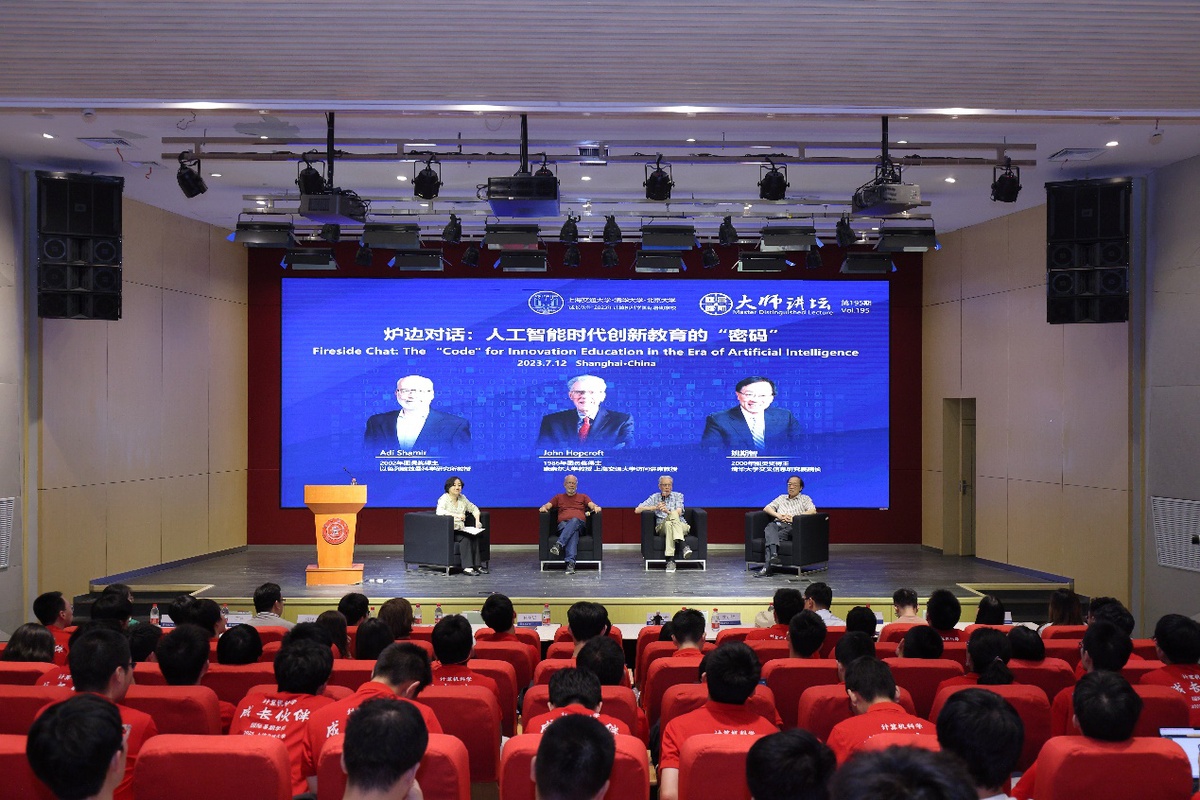
A trio of Turing Award laureates: John Hopcroft, the 1986 winner and professor at Cornell University; Andrew Chi-Chih Yao, the 2000 winner and Dean of the Institute for Interdisciplinary Information Sciences at Tsinghua University and Adi Shamir, the 2002 winner and professor at Israel's Weizmann Institute of Science, gathered at Shanghai Jiao Tong University on Wednesday to meet with more than 200 Chinese university students for a master lecture and open chat session.
Adi Shamir presented his latest research on facial misrecognition systems. He and his team have designed a special linear transformation enabling a facial recognition system to recognize anyone except a specific person.
The scholars then discussed the surge of artificial intelligence and how it will change education.
"When there's a revolution like this, there are tremendous opportunities," Hopcroft said, "but it's hard to predict exactly what will happen."
"Humans' most competitive advantage is flexibility compared with Chat Generative Pre-trained Transformer (ChatGPT)," Shamir said. "All this machine learning is still not able to do inventive, creating and deep thinking work."
Yao pointed out the threat of ChatGPT to education. "It is actually very urgent for educators to think about the ethics of AI like ChatGPT," Yao said.
The program is part of the summer school cooperatively held by SJTU, Tsinghua University and Peking University.
"With high-level courses and masters, this summer school gives me the chance to talk with partners from different majors, schools and countries," said Yang Jinsheng, a student at SJTU's Zhiyuan College.
"The summer school enables me to get out of my comfort zone and determine the direction I wish to go," said Li Yitang, a student at Tsinghua University.
Liang Ruiting contributed to the story.